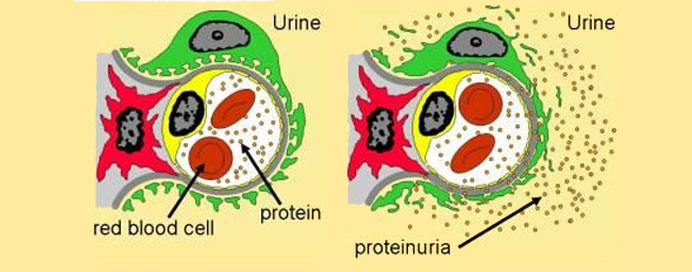Leakage Of Protein In Urine (Nephrotic Syndrome)
Home / Dr. Rahul Deshpande
Our Services
- Rise In Creatinine
- Blood In Urine
- Acute Kidney Injury
- Glomerulonephritis
- Urinary Tract Infection
- Acid Base Disorder
- Fluids & Electrolyte Disorders
- Prostate Related Problems
- Leakage Of Protein In Urine ( Nephrotic/Nephritic Syndrome)
- Rapidly Progressive Renal Failure
- High Blood Pressure (Hypertension) & Its Related Kidney Complications
- Diabetes & It's Related Kidney Complications
- Chronic Kidney Injury & Its Complications
- Kidney Dialysis Therapy (Hemodialysis And Peritoneal Dialysis)
- Kidney Stone & It’s Medical Management
- Kidney Transplant & It’s Complications
- Interventional Nephrology - Renal Biopsy - Dialysis Catheter (Temporary & Tunnelled Catheters)
- Critical Care Nephrology (ICU Related Kidney Disorders)
- Onconephrology (Cancer Related Kidney Disorders)
Leakage Of Protein In Urine (Nephrotic Syndrome)

Protein leakage in the urine, known as proteinuria, is a common sign of kidney dysfunction. There are two main syndromes associated with proteinuria: nephrotic syndrome and nephritic syndrome. Let’s delve into each briefly.
In Nephrotic Syndrome, the glomeruli (the tiny filters in the kidneys) get a bit too lenient, allowing essential proteins like albumin to sneak out into the urine. This protein leakage can lead to edema (swelling), especially in the ankles and around the eyes. It’s like the glomeruli are hosting a party and letting the VIPs escape.
On the other stage, we have Nephritic Syndrome. This is more of an inflammation-driven drama. The glomeruli are not as welcoming, and instead of letting proteins escape, they let blood and red blood cells slip through. This can lead to symptoms like blood in the urine, high blood pressure, and sometimes even kidney failure. It’s like the glomeruli are playing hard to get and causing a bit of chaos.
Both syndromes can have various underlying causes, from infections and autoimmune disorders to genetic factors. Diagnosis involves a bit of detective work, with urine tests, blood tests, and sometimes kidney biopsies.
Treatment often involves addressing the underlying cause, managing symptoms, and keeping an eye on blood pressure and fluid balance. Medications to control inflammation and reduce protein leakage might also take center stage.
